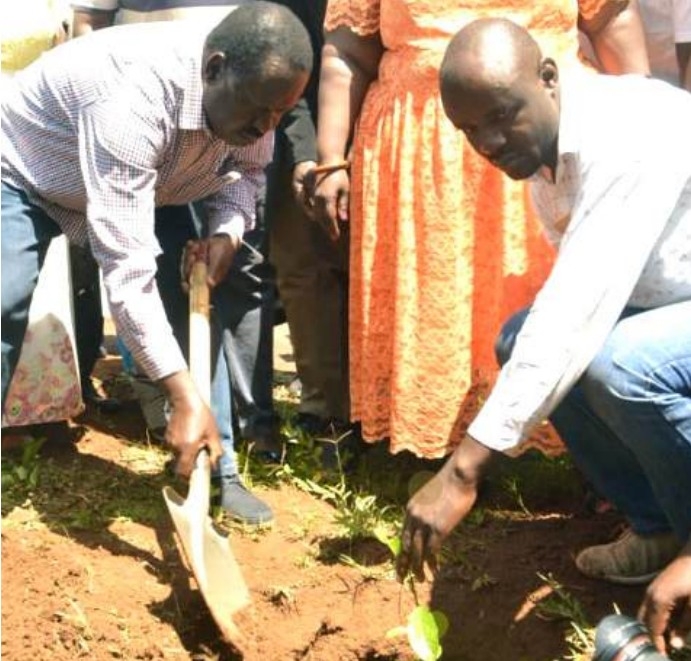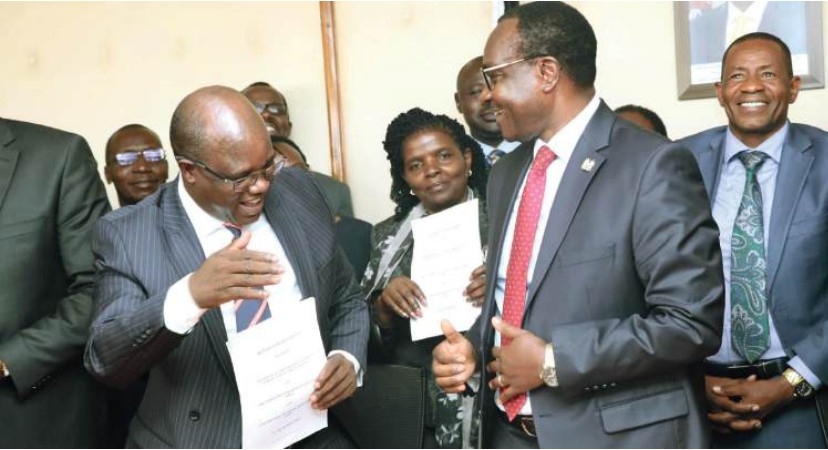As a continent with a horrid history of enslavement and colonisation, Africa has emerged from its dark past as the fastest-growing continent in the world. We, as Africans have never been more proud of ourselves than we are right now. Africa is a rainbow of races, ethnicities, tribes and peoples.
Although we are forced, on a global scale, to identify as nationals of particular countries, most of us know and understand that our identities have always transcended the boundaries of colonial empires. Many peoples and tribes identify with their brothers and sisters across the borders. If I may borrow the words of Mexicans from Texas, and I quote, “We didn’t cross the border, the border crossed us.”
Take Kenyan Somalis, for instance. They woke up one morning to find themselves as part of a nation whose borders were drawn by a group of white men who divided the land they had never set foot on. As such, we now have a tribe called Kenyan Somalis that could potentially have family all across the horn of Africa, some even extending to Ethiopia.
The aim of the show Young, Famous and African was to showcase the affluence and success of young Africans to the world, which is needed because we are all tired of misrepresentation by mainstream western media. However, it also made me realise that the representation was necessary for most Africans as we often forget that we could share cultures beyond borders.
I would like to use myself as an example. I have spoken many times about my cultural ambiguity, which is pretty much the norm in areas with a long history like the Sahel. The Sahel was the name given to the coastline of East Africa by Arab traders. We know most traders from the East (China, India, Arabia, and so on) arrived on the shores of East Africa long before the colonialists and explorers. Because of centuries of trade, most traders who settled down on the shores of East Africa eventually formed a similar culture and language along the coastline.
When I visited Tanzania, it seemed like a different culture and language (because of the dialect), even though we share many similarities with them. However, Zanzibar felt like home to me. They spoke with the same dialect, presented themselves similarly to us and ate almost the exact same foods we eat in Mombasa. As a side note, has anyone ever noticed that Samia Suluhu’s Zanzibar dialect is much closer to the Mombasa dialect than it is to mainland Tanzania?
I brought this up because I realised many Kenyans are unaware of our diverse history. On the show Young, Famous and African, East Africa is represented by Diamond Platnumz from Tanzania and Zari Hassan from Uganda. While I am unfamiliar with these people personally, I know that we share more cultural similarities than I would with a Kenyan from another tribe.
When Diamond held an Arabian Nights-themed party on the show, I understood what he was trying to portray or explain about his heritage. On Twitter, some people found it ridiculous when Diamond said that they were colonised by Arabs and Indians.
I am sure he meant that the Indian heritage has been embedded in our DNA because of our deep-seated history. However, those hailing from the Sahel were colonised by Arabs under the Sultanate of Oman and Zanzibar. Which is why to date, an Oman national could look and sound like me might have more in common culturally with me than any other Kenyan from a different tribe.
I am Kenyan, but I am also a product of a mysterious history and people who came from far-off places. My son’s nationality is Kenyan, but he is half Central African. His culture will be an amalgamation his mother’s, his father’s and the culture of the land he grows up in. He is my constant reminder that culture is what we make of it. Culture transcends the borders we live in.














![[PHOTOS] How ODM@20 dinner went down](/_next/image?url=https%3A%2F%2Fcdn.radioafrica.digital%2Fimage%2F2025%2F11%2F99d04439-7d94-4ec5-8e18-899441a55b21.jpg&w=3840&q=100)
